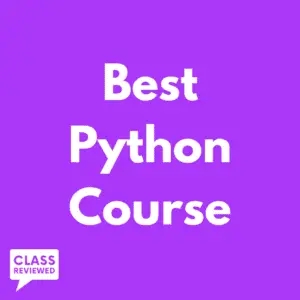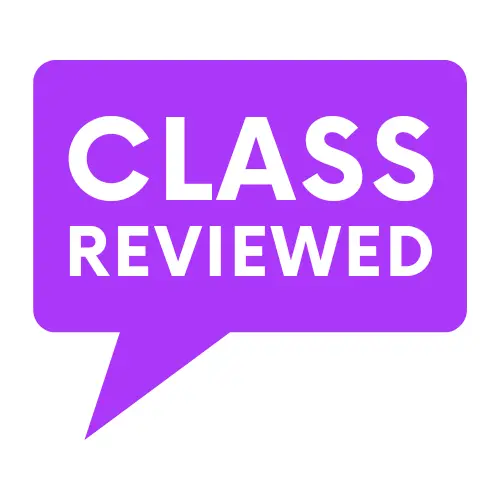We have compiled, tested, reviewed, and ranked the best Python courses for you in this blog post! When it comes to coding, Python is one of the most popular programming languages. It can be used for nearly any purpose and has gained popularity as an introductory language for beginners.
Top 8 FREE Best Python Courses
In this post, we’ll look at some great resources for learning the Python language, including everything from beginner, intermediate, and advanced Python courses that cover everything from data manipulation to web scraping.
1. Programming for Everybody (Python Course)
Join over 2,000,000 students in the best Python course! This is a great course if you’re just starting out, or if you’ve been meaning to learn Python but don’t know where to start. The course covers basic programming concepts, such as variables and loops, as well as more advanced concepts like list comprehension and recursion.
Programming for Everybody covers Chapters 1-5 of this textbook: Python for Everybody
2. Introduction to Interactive Programming in Python
This course is intended for complete beginners, who have no prior experience with programming. It teaches the basics of Python programming language and principles of interactive computing.
Content covered in this Python course:
- Basic syntax and data types
- Working with strings
- Lists, dictionaries, and sets
- Control flow
- Functions
3. Python Data Structures
This course covers the most important data structures that you will come across in Python. You will learn about:
- Lists, tuples, and sets
- Dictionaries and their use cases
- Sets and dictionals (e.g., strings)
4. Introduction to Python
This course is an introduction to Python for beginners. It serves as a good starting point for anyone interested in learning the language, whether you’re new to programming or if you have experience with other languages like Java or SQL. This course teaches:
- Variables and Types
- Strings and Numbers
- Operators and Expressions
- Functions and Modules
5. Intermediate Python
This course will teach you how to use Python as a tool for data science. You’ll learn about how to use NumPy, Pandas, and Matplotlib to process and understand large amounts of data, and about some advanced topics like signal processing and machine learning. This course is for those who already know basics of Python (or another programming language) and want to get into data science with Python.
6. Introduction to Data Science in Python
This course is designed for complete beginners who have never coded before, or are familiar with some basics of coding. The program will teach you how to use Python to access and manipulate data sets in various formats (text files, Excel spreadsheets), load them into memory, and then visualize them with various techniques (bar charts, line graphs). It also covers basic methods of importing modules from other libraries like NumPy or pPinto your code so they can be used directly instead of copying pasting long chunks of codes each time you want to run an operation with one of those libraries (which would slow down your productivity). You’ll learn basic syntax for parsing unstructured text and how Python handles variables & types – including lists/arrays/dictionaries, etc.
7. Computing in Python I: Fundamentals and Procedural Programming
This course is the first in a series that will teach you to use Python to solve computational problems. In this first course, you will learn how to write programs in Python by focusing on fundamental programming concepts such as variables, data types, flow control structures, functions, and objects. This course covers all the basics so that students have a firm grasp of the fundamentals needed for subsequent courses in the series.
8. Introduction To Python Programming
This course is an introduction to the Python programming language. It covers the basics of variables and data types. The course includes an explanation of how Python works with real-world applications like web scraping and web crawling.

Top 5 Paid Python Courses
While there are some solid free Python courses online, these are my top 5 best Python courses that I suggest you pay for!
1. Core Python
If you want to learn the Python language, Pluralsight offers truly the best option called “Core Python”. This is an introductory course that covers the basics of Python. It will teach you how to use data structures (like lists and dictionaries), functions, classes, modules, and packages. You’ll also be able to perform basic operations with strings and regular expressions as well as work with files in your code. You’ll also learn about debugging techniques before wrapping up your studies by learning about debugging techniques at the end of this course.
2. 100 Days of Code: The Complete Python Pro Bootcamp
This is one of the best Python courses focused on developing a solid foundation, 100 Days of Code is best suited for students with no prior experience in the language. The course covers a wide range of topics, including data types, functions, and control flow statements as well as object-oriented programming (OOP) techniques.
Each module focuses on a single topic and uses both video lectures and screencasts to explain concepts and show examples of code being run by the author David Beazley’s personal computer as he goes through each lesson. There are also quizzes at the end of each module that tests your understanding of what was covered during that session.
3. Complete Python Bootcamp From Zero to Hero in Python
The Complete Python Bootcamp teaches programming in Python from A to Z.
4. Learn Python 3
Python is open-source, free to use, and the most popular programming language that’s used for all sorts of data analysis, machine learning, and web development.
5. Analyze data with Python
The most important thing to learn when you’re starting out is Python’s syntax and structure. You’ll need to know how to write simple statements and how they work together, so that you can create more complex expressions later on.
This course does a great job of getting you started on this path by introducing the basics of loops, conditionals, and functions. It also teaches you about strings in Python—how they work and what some common string methods are for. Then it moves on to lists, dictionaries, and tuples (which are like lists but without order). By the end of the course, you’ll be able to demonstrate how all these elements come together in an actual coding project!
The Best Python Course
In the end, there are a lot of different Python courses to choose from. The best way to find the one that is right for you is by trying some out and seeing how well they fit into your learning style!
